Introduction to Reishi Mushrooms
Reishi mushrooms (Ganoderma lucidum) stand as one of the most revered medicinal fungi in the world, with a documented history of use spanning over 2,000 years. Often called the "mushroom of immortality" or the "divine mushroom of longevity," Reishi has earned its prestigious reputation through centuries of traditional use in Eastern medicine and, more recently, through rigorous scientific research validating many of its health-supporting properties.
This remarkable fungus is characterized by its distinctive kidney-shaped cap with a glossy, reddish-brown surface that resembles polished wood. Unlike culinary mushrooms valued primarily for their flavor, Reishi is prized exclusively for its medicinal properties. Its naturally woody texture and intensely bitter taste make it unsuitable for culinary applications, but these same characteristics signal the presence of powerful bioactive compounds that contribute to its impressive array of health benefits.
As interest in natural wellness solutions continues to grow worldwide, Reishi mushrooms have transitioned from an obscure traditional remedy to a mainstream superfood. Available in various forms including powders, capsules, tinctures, and extracts, Reishi has become accessible to health enthusiasts seeking to harness its adaptogenic, immune-modulating, and wellness-promoting properties. This comprehensive guide explores the extensive benefits of Reishi mushrooms, examining both traditional wisdom and contemporary scientific understanding of this extraordinary fungus.

Historical Use and Cultural Significance
The rich historical background of Reishi provides important context for understanding its esteemed position in traditional medicine systems and its continued relevance today.
Ancient Medical Traditions
Reishi has been documented in medical texts for millennia:
- First described in the Shennong Ben Cao Jing (The Divine Farmer's Materia Medica), one of the oldest Chinese pharmacopeias dating back to approximately 200 BCE
- Classified among the "superior herbs" in traditional Chinese medicine—a category reserved for substances believed to promote longevity, enhance vital energy, and cause no side effects with long-term use
- Featured prominently in the Ben Cao Gang Mu (Compendium of Materia Medica) by Li Shizhen during the Ming Dynasty, which detailed its medicinal applications
- Valued in traditional Japanese medicine (Kampo) under the name "Reishi" or "Mannentake" (the 10,000-year mushroom)
- Used in traditional Korean medicine as "Yeongji" for similar health-promoting purposes
These historical applications laid the groundwork for many of the benefits still associated with Reishi today.
Symbolism and Cultural Value
Beyond its medicinal applications, Reishi held profound symbolic importance:
- Depicted in ancient art as a symbol of good fortune, divine power, and longevity
- Associated with royalty and nobility due to its rarity in the wild
- Featured in the folklore of many Asian cultures as a symbol of success and well-being
- Considered by Taoist monks to promote spiritual potency and a centeredness that enhances meditation
- Represented in carvings, paintings, and textiles as a mystical emblem of immortality
This cultural significance reflects Reishi's status not just as medicine but as a symbol of humanity's quest for optimal health and longevity.
Transition to Modern Use
The journey of Reishi from ancient remedy to contemporary supplement:
- Cultivation techniques developed in the 1970s dramatically increased availability
- Scientific research beginning in the 1980s started validating traditional claims
- Growing global interest in natural health solutions created increased demand
- Modern extraction methods improved the bioavailability of Reishi's beneficial compounds
- Integration into wellness routines worldwide as research continues to expand our understanding of its benefits
This evolution has transformed Reishi from a rare treasure to a practical daily supplement accessible to people around the world.
Key Bioactive Compounds
The therapeutic properties of Reishi mushrooms stem from their rich array of bioactive compounds, each contributing unique benefits to overall health.
Triterpenes
These bitter compounds are among the most studied components in Reishi:
- More than 150 different triterpenes have been identified in Reishi mushrooms
- Ganoderic acids demonstrate hepatoprotective, anti-inflammatory, and antioxidant properties
- Lucidenic acids show potential anticancer and anti-inflammatory effects
- Many triterpenes in Reishi help regulate blood pressure and cholesterol levels
- The bitter taste of Reishi products often indicates high triterpene content
Research suggests these compounds are responsible for many of Reishi's cardiovascular and anti-inflammatory benefits.
Polysaccharides and Beta-Glucans
Complex carbohydrate structures with powerful immune-modulating effects:
- Beta-D-glucans interact with immune receptors to enhance natural killer cell activity
- Complex polysaccharides help modulate both innate and adaptive immune responses
- These compounds may help the body recognize and respond to various pathogens more effectively
- Water-soluble polysaccharides contribute to Reishi's anti-tumor and immunostimulating properties
- The molecular structure of these compounds is crucial to their biological activity
The polysaccharide content is particularly important for Reishi's immune-supporting benefits.
Proteins and Peptides
Reishi contains various proteins with significant biological activity:
- Ling Zhi-8 (LZ-8), an immunomodulatory protein unique to Reishi
- Bioactive peptides that demonstrate antioxidant capabilities
- Lectins that interact with cell membranes and may influence immune function
- Enzymes that contribute to Reishi's overall biological effects
- Proteins that may help regulate inflammatory pathways
These protein components complement the other bioactive compounds to create Reishi's comprehensive health benefits.
Secondary Compounds
Additional beneficial substances found in Reishi:
- Sterols that may help regulate cholesterol metabolism
- Nucleosides that support cellular energy and function
- Alkaloids with various biological activities
- Organic germanium, which may enhance oxygen utilization
- Trace minerals that act as cofactors for enzymatic reactions
This diverse array of compounds creates a synergistic effect that likely explains Reishi's wide-ranging health benefits.
Scientifically Validated Benefits
Modern research has validated many traditional uses of Reishi mushrooms, providing scientific evidence for various health benefits.
Immune System Enhancement
One of Reishi's most well-documented benefits is its positive effect on immune function:
- Multiple studies demonstrate Reishi's ability to enhance natural killer cell activity, a crucial component of innate immunity
- Research published in the Journal of Ethnopharmacology shows Reishi extracts can increase the production of cytokines that regulate immune response
- Clinical trials indicate Reishi may help the body recognize and respond to pathogens more effectively
- Studies suggest Reishi can modulate excessive immune responses, potentially beneficial for inflammatory conditions
- Research in the International Journal of Medicinal Mushrooms demonstrates Reishi's ability to enhance various aspects of cellular immunity
This immunomodulatory effect makes Reishi particularly valuable during seasonal transitions or periods of increased immune challenges.
Stress Reduction and Adaptogenic Effects
As a powerful adaptogen, Reishi helps the body respond more effectively to various stressors:
- Research in Molecular and Cellular Biochemistry found Reishi can help regulate cortisol levels and other stress hormones
- Studies demonstrate improvements in markers of physical stress resistance after Reishi supplementation
- Clinical observations indicate Reishi may help reduce mental fatigue and improve focus during stressful periods
- Research suggests Reishi supports adrenal function, which is crucial for stress response
- A study in the Journal of Medicinal Food found Reishi extract improved resilience to both physical and mental stressors
These adaptogenic properties make Reishi particularly valuable in our high-stress modern environment.
Sleep Improvement and Relaxation
Both traditional use and modern research suggest Reishi may benefit sleep quality:
- A study in Pharmacology, Biochemistry, and Behavior found Reishi extract extended sleep time in test subjects
- Research indicates Reishi may help regulate sleep-wake cycles when used consistently
- Clinical observations suggest Reishi can help reduce sleep latency (time to fall asleep)
- Traditional use for "calming the spirit" has been partially validated by research showing relaxation effects
- Studies suggest Reishi may support healthy levels of neurotransmitters involved in sleep regulation
Many users report improved sleep quality with regular Reishi consumption, particularly when taken in the evening.
Cardiovascular Support
Research supports Reishi's traditional use for heart health:
- Studies published in the British Journal of Nutrition demonstrate Reishi's ability to improve lipid profiles by reducing LDL cholesterol while maintaining or increasing HDL cholesterol
- Research in the Journal of Ethnopharmacology found Reishi extracts may help reduce blood pressure in some individuals
- Clinical trials suggest Reishi may improve blood circulation and oxygen delivery
- Antioxidants in Reishi help protect blood vessels from oxidative damage
- Research indicates Reishi may help reduce platelet aggregation, supporting healthy blood flow
These cardiovascular benefits align with Reishi's traditional reputation for supporting longevity and vitality.
Liver Protection
The hepatoprotective effects of Reishi have been documented in various studies:
- Research in the International Journal of Medicinal Mushrooms found Reishi extract helped protect liver cells from toxin-induced damage
- Studies demonstrate Reishi's ability to support the liver's natural detoxification processes
- Clinical research suggests Reishi may help reduce inflammation in liver tissue
- Several studies indicate potential benefits for those with fatty liver conditions
- Research shows Reishi may help regenerate damaged liver cells
This liver support makes Reishi particularly valuable in our modern world with its many environmental toxins.
Anti-Cancer Potential
While not a cancer treatment on its own, research has explored Reishi's supportive role:
- Laboratory studies show Reishi extracts may inhibit the proliferation of certain cancer cell lines
- Research published in the Journal of Cancer Research and Clinical Oncology suggests Reishi may enhance the efficacy of conventional cancer treatments
- Studies indicate Reishi could potentially reduce certain side effects of chemotherapy and radiation
- Research demonstrates Reishi's ability to induce apoptosis (programmed cell death) in some cancer cells
- Clinical observations suggest Reishi may improve quality of life measures in cancer patients
While promising, these findings require further research and should not replace conventional cancer treatments.
Traditional Benefits and Applications
Beyond scientifically validated benefits, traditional wisdom attributes several additional properties to Reishi mushrooms.
Longevity and Anti-Aging
Reishi's traditional reputation as a longevity tonic has some scientific basis:
- Contains powerful antioxidants that help combat oxidative stress, a key factor in aging
- May support mitochondrial function, which is crucial for cellular energy and vitality
- Traditional use for "extending life and preventing aging" aligns with modern understanding of its stress-reducing properties
- Supports multiple body systems simultaneously, potentially contributing to overall longevity
- May help maintain cognitive function with age through neuroprotective effects
While science cannot yet validate claims of "immortality," Reishi's multiple health-supporting mechanisms may indeed contribute to healthy aging.
Respiratory Support
Traditional use for lung health has some scientific support:
- Historical applications for "nourishing the lung" and easing breathing difficulties
- Research suggests potential benefits for respiratory inflammation
- Traditional formulations frequently combined Reishi with other herbs for respiratory conditions
- May support healthy oxygen utilization in tissues
- Could potentially benefit those with seasonal respiratory challenges
These traditional applications for respiratory health continue to be explored in modern research.
Mental Clarity and Cognitive Function
Traditional Taoist use for mental wellness shows promise:
- Historically used to "calm the spirit and cultivate wisdom"
- May support healthy neurotransmitter function
- Traditional applications for enhancing meditation practices
- Potentially neuroprotective effects being investigated in current research
- Stress-reducing properties may indirectly benefit cognitive function
The traditional understanding of Reishi's effects on mental state offers an interesting area for continued scientific exploration.
Spiritual Well-being
Though difficult to measure scientifically, traditional spiritual applications are noteworthy:
- Traditionally used by spiritual practitioners to enhance meditation
- Considered to help balance physical and spiritual energies
- Used in Taoist practices for cultivating inner peace
- Traditional belief that Reishi connects the body with higher consciousness
- Ancient texts describe Reishi as nourishing the "shen" or spirit
While these spiritual applications lie outside the realm of scientific validation, they represent an important aspect of Reishi's traditional use.
How to Use Reishi for Maximum Benefits
Optimal use of Reishi mushrooms varies depending on individual health goals and preferences.
Forms and Preparations
Reishi is available in several forms, each with advantages:
- Dried mushroom slices: Traditional form used to make decoctions; requires long simmering to extract beneficial compounds
- Powdered extracts: Concentrated form that's convenient and effective; often standardized for active compounds
- Tinctures: Liquid extracts that offer rapid absorption and flexible dosing
- Capsules: Convenient, tasteless option with precise dosing
- Dual-extraction products: Combine water and alcohol extraction to capture the full spectrum of beneficial compounds
The most effective forms are typically dual-extraction products that capture both water-soluble and alcohol-soluble compounds.
Dosage Guidelines
Appropriate dosing depends on several factors:
- Extract vs. whole mushroom: Extracts typically require smaller doses than whole mushroom powder
- Concentration ratio: Higher ratios (e.g., 10:1) indicate more mushroom material was used to create the extract
- Individual body weight and sensitivity: Larger individuals may require slightly higher doses
- Health goals: Preventative use typically requires lower doses than therapeutic use
- Personal response: Some individuals are more sensitive to Reishi's effects than others
General guidelines for adults:
- Whole mushroom powder: 1-3 teaspoons (2-6 grams) daily
- Extract powder (dual extract): ¼-1 teaspoon (0.5-2 grams) daily
- Standardized extract: Follow manufacturer's recommendations based on concentration
- Tincture: 20-40 drops, 2-3 times daily
Starting with a lower dose and gradually increasing allows assessment of individual response.
Timing Considerations
When to take Reishi for optimal benefits:
- For immune support: Morning or afternoon use provides all-day benefits
- For sleep enhancement: Evening use, approximately 1-2 hours before bedtime
- For stress management: Either morning dose for all-day support or divided doses morning and evening
- With or without food: Can be taken either way, though some find taking with food reduces digestive sensitivity
- Consistency matters: Regular daily use typically provides better results than occasional consumption
Some practitioners recommend cycling adaptogenic herbs (e.g., 5 days on, 2 days off) to prevent adaptation.
Synergistic Combinations
Reishi pairs well with complementary supplements:
- Other medicinal mushrooms: Lion's Mane for cognitive benefits, Chaga for additional antioxidant support, Cordyceps for energy
- Adaptogens: Ashwagandha for additional stress support, Rhodiola for energy, Holy Basil for mood
- Vitamin C: May enhance the immune-supporting properties of Reishi
- Vitamin D: Complements Reishi's immune benefits
- Zinc: Works synergistically with Reishi for immune function
These combinations can enhance specific benefits based on individual health goals.

Who Can Benefit Most from Reishi Mushrooms
While Reishi offers broad health benefits, certain populations may find it particularly valuable.
Individuals with High Stress Levels
Reishi's adaptogenic properties make it especially beneficial for:
- Professionals in high-pressure work environments
- Caregivers managing chronic stress
- Students during examination periods
- Individuals experiencing major life transitions
- Those with stress-related health challenges
The stress-modulating effects of Reishi can provide valuable support during challenging periods.
Immune-Compromised Individuals
Reishi's immune-supporting properties may benefit:
- Those with recurrent seasonal immune challenges
- Individuals with weakened immune systems due to stress or lifestyle factors
- People exposed to environments with increased pathogen load
- Those seeking additional immune support during seasonal transitions
- Individuals recovering from immune challenges
Reishi's balanced approach to immune modulation makes it suitable for long-term use.
Sleep-Challenged Individuals
Those struggling with sleep may benefit from Reishi's calming properties:
- Individuals with occasional sleep difficulties
- Those whose sleep is disrupted by stress or anxiety
- People experiencing jet lag or schedule changes
- Individuals seeking natural sleep support without morning grogginess
- Those looking to improve sleep quality rather than just duration
Reishi's gentle approach to supporting sleep makes it an excellent option for those seeking natural alternatives.
Aging Population
Reishi's multi-system benefits are particularly valuable for healthy aging:
- Supporting cardiovascular health in older adults
- Helping maintain robust immune function with advancing age
- Providing antioxidant protection against age-related oxidative stress
- Supporting cognitive function and mental clarity
- Promoting overall vitality and energy
These benefits align with Reishi's traditional reputation as a longevity tonic.
Athletes and Active Individuals
Those engaged in regular physical activity may benefit from:
- Reishi's support for recovery after intense exercise
- Immune protection during periods of heavy training
- Stress-modulating effects that may improve performance
- Adaptogenic properties that help the body respond to physical challenges
- Support for overall energy and stamina
Athletes increasingly incorporate medicinal mushrooms like Reishi into their training regimens.
Potential Side Effects and Precautions
While generally considered safe for most people, Reishi is not without potential concerns for certain individuals.
Common Side Effects
Possible reactions that some individuals may experience:
- Digestive discomfort, particularly when first introducing Reishi
- Dry mouth or throat in some sensitive individuals
- Dizziness or lightheadedness (rare)
- Skin rashes in cases of allergic reaction
- Headaches (occasionally reported)
Most side effects are mild and often diminish as the body adjusts to regular Reishi consumption.
Drug Interactions
Potential interactions with medications to be aware of:
- Anticoagulants/antiplatelets: Reishi may enhance the effect of blood-thinning medications
- Immunosuppressants: As an immune modulator, Reishi could potentially interfere with these drugs
- Antihypertensives: Reishi may enhance blood pressure-lowering effects
- Hypoglycemic drugs: Potential to enhance blood sugar-lowering effects
- Chemotherapy drugs: Possible interactions requiring medical supervision
Always consult with a healthcare provider before combining Reishi with prescription medications.
Who Should Avoid Reishi
Certain groups should exercise caution or avoid Reishi:
- Pregnant or breastfeeding women (due to insufficient safety data)
- Individuals with bleeding disorders
- Those scheduled for surgery (discontinue at least 2 weeks before)
- People with known mushroom allergies
- Individuals with certain autoimmune conditions (without medical supervision)
When in doubt, consultation with a healthcare provider can determine if Reishi is appropriate for your specific situation.
Quality and Contamination Concerns
The quality of Reishi products can vary significantly:
- Source material may contain environmental contaminants if not properly tested
- Some products may not contain the levels of active compounds claimed on labels
- Heavy metal contamination is possible, particularly in products from unregulated sources
- Mycotoxins can be present in improperly processed mushroom products
- Additives and fillers may cause reactions in sensitive individuals
Choosing products from reputable manufacturers with third-party testing helps mitigate these concerns.
Selecting High-Quality Reishi Products
With numerous products on the market, knowing how to identify quality Reishi supplements is essential.
Source and Species Considerations
The source material significantly impacts quality:
- Ganoderma lucidum vs. other species: G. lucidum (red Reishi) is the most studied species with the strongest research support
- Growing conditions: Organic cultivation methods ensure the mushrooms are free from pesticides and other contaminants
- Fruiting body vs. mycelium: Products using the actual mushroom fruiting body generally contain higher levels of beneficial compounds compared to mycelium grown on grain
- Wild vs. cultivated: Well-grown cultivated Reishi can be equally potent to wild-harvested and more sustainable
- Geographical origin: Some regions have stricter quality standards for supplement production
Understanding these source factors helps identify products likely to provide optimal benefits.
Extraction Methods
How Reishi is processed affects its potency and bioavailability:
- Dual extraction: Using both water and alcohol extracts provides the most comprehensive range of compounds
- Extract ratios: Higher ratios (e.g., 8:1 or 10:1) indicate more mushroom material was used to create the extract
- Standardization: Some premium products standardize for specific active compounds like beta-glucans or triterpenes
- Processing temperature: Low-temperature processing helps preserve heat-sensitive compounds
- Full-spectrum extraction: Ensures the complete profile of beneficial compounds is maintained
These processing considerations directly impact the effectiveness of the final product.
Certification and Testing
Quality assurance measures to look for:
- Organic certification: Verifies cultivation without synthetic chemicals
- GMP (Good Manufacturing Practices) certification: Ensures adherence to quality standards
- Third-party testing: Confirms potency and purity
- Heavy metal testing: Particularly important as mushrooms can bioaccumulate metals
- Beta-glucan content: Some quality products specify the percentage of these important compounds
Reputable companies make these certifications and test results readily available to consumers.
Red Flags to Watch For
Warning signs that may indicate inferior products:
- Unusually low prices compared to market standards
- Lack of transparency about source material or extraction methods
- No mention of testing for contaminants
- Claims that seem too good to be true or promise miraculous results
- Failure to specify which part of the mushroom is used (fruiting body vs. mycelium)
Being aware of these red flags helps consumers avoid low-quality or potentially harmful products.
Frequently Asked Questions About Reishi Mushrooms Benefits
How long does it take to experience benefits from Reishi mushrooms?
The timeframe for experiencing benefits varies considerably:
- Acute effects like relaxation or improved sleep may be noticed within days
- Immune support and stress resilience typically develop over 2-4 weeks
- Full adaptogenic benefits often require consistent use for 1-3 months
- Certain benefits, such as those related to cardiovascular health, may take even longer to manifest
Patience and consistency are key when working with adaptogenic substances like Reishi.
Can I take Reishi mushrooms every day?
Reishi is generally considered safe for daily use. In traditional Chinese medicine, it's classified as a superior tonic herb, which indicates it can be taken regularly with minimal risk of side effects. However, some practitioners recommend cycling adaptogenic herbs (e.g., taking regular short breaks) to prevent adaptation and maintain effectiveness. As with any supplement, it's advisable to consult with a healthcare provider about long-term use.
Will Reishi mushrooms make me sleepy during the day?
While Reishi can support healthy sleep patterns, it typically doesn't cause daytime drowsiness when taken in appropriate doses. Rather than acting as a sedative, Reishi helps regulate the body's stress response and promotes natural sleep-wake cycles. Some individuals may experience mild relaxation effects, particularly when first beginning use. If daytime drowsiness occurs, adjusting the dosage or timing may help address this issue.
Are there any foods or supplements I should avoid when taking Reishi?
Reishi generally combines well with most foods and supplements. However, considerations include:
- Caution when combining with other blood-thinning supplements like high-dose fish oil, ginkgo biloba, or garlic supplements
- Potential enhancement of blood sugar-lowering effects when combined with cinnamon, berberine, or other supplements that affect blood glucose
- Possible additive effects when combined with other supplements that affect blood pressure
- Enhanced immune effects when combined with other immune-modulating supplements
These interactions are generally not concerning for healthy individuals but may be significant for those with medical conditions or on medications.
How does Reishi compare to other medicinal mushrooms?
Each medicinal mushroom offers unique benefits:
- Reishi excels in stress reduction, sleep support, and balanced immune modulation
- Lion's Mane focuses on cognitive enhancement and nerve regeneration
- Chaga provides exceptional antioxidant properties and skin health support
- Cordyceps emphasizes energy, stamina, and oxygen utilization
- Turkey Tail specializes in gut health and immune support
Many users find benefit in combining different medicinal mushrooms for complementary effects.
Conclusion
Reishi mushrooms offer an impressive array of benefits that span multiple body systems. From immune support and stress reduction to sleep enhancement and cardiovascular health, this remarkable fungus continues to validate its ancient reputation as a superior tonic herb. The scientific research validating many traditional uses of Reishi provides compelling evidence for its inclusion in modern wellness routines.
As with any natural health supplement, the quality of Reishi products significantly impacts their effectiveness. By understanding the factors that influence quality—from cultivation methods and processing techniques to testing standards and proper storage—consumers can make informed choices that maximize potential benefits. Whether consumed as an extract, powder, tincture, or capsule, Reishi offers flexibility that accommodates various lifestyles and preferences.
While not a panacea, consistent use of high-quality Reishi mushrooms may contribute significantly to overall wellbeing, particularly for those experiencing stress, immune challenges, or sleep difficulties. As interest in natural health solutions continues to grow, this ancient fungal ally stands out as a time-tested option backed by both traditional knowledge and contemporary research. For those seeking a balanced approach to wellness that addresses multiple aspects of health simultaneously, Reishi mushrooms offer a compelling option with a remarkable safety profile and extensive benefits.

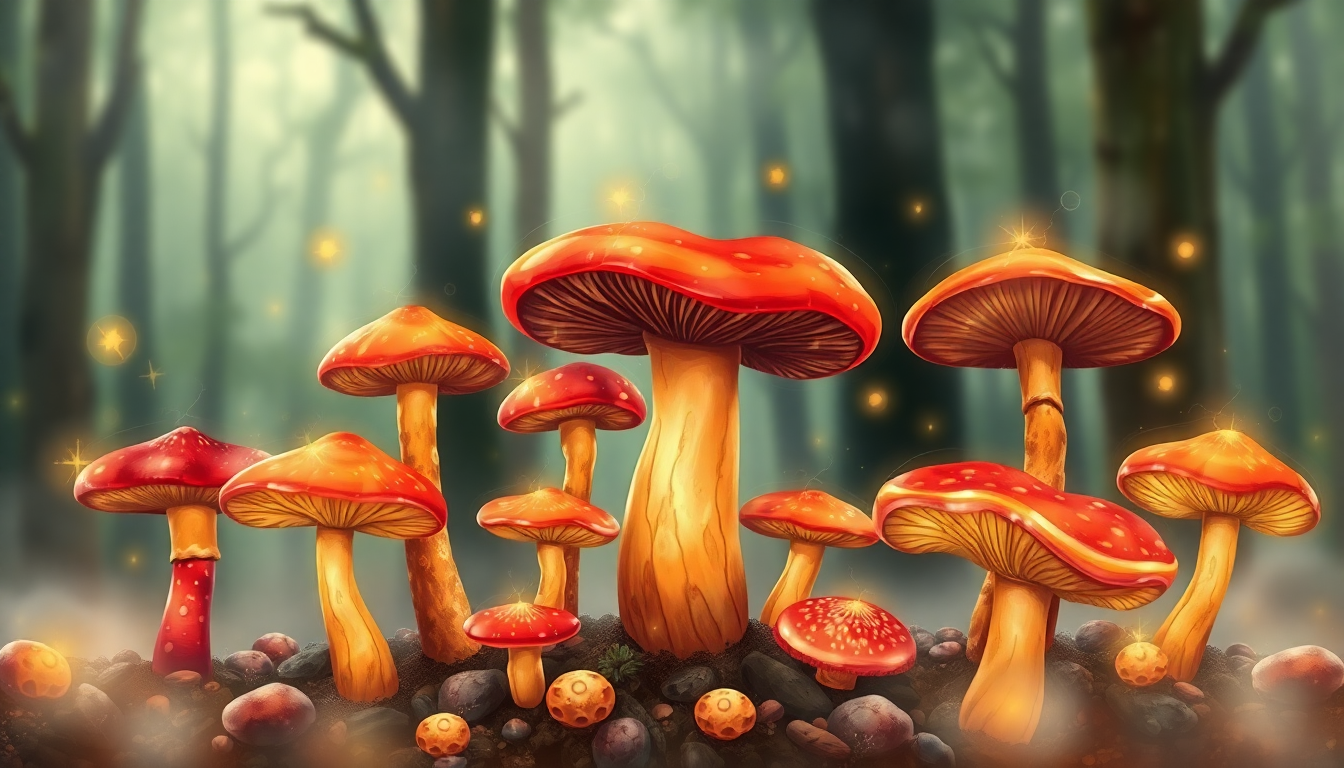



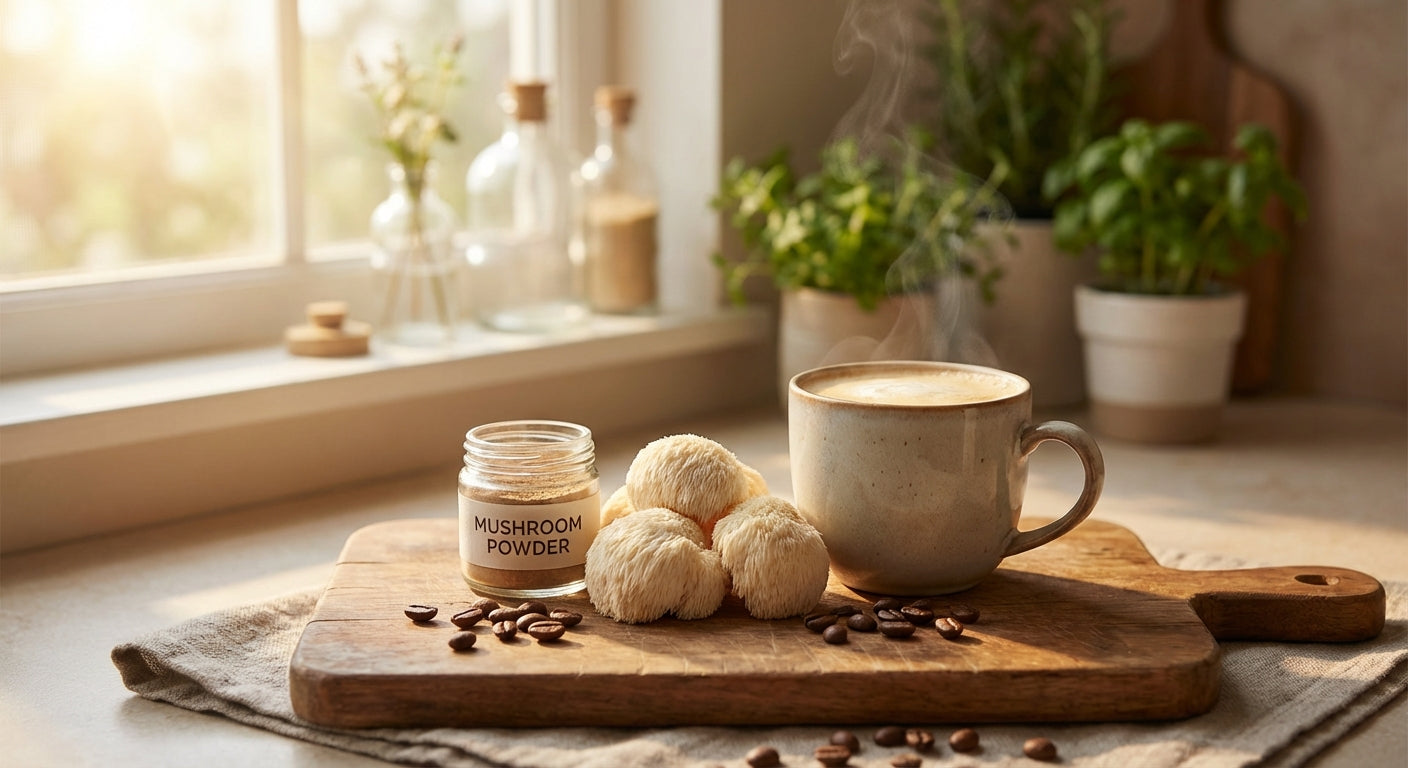
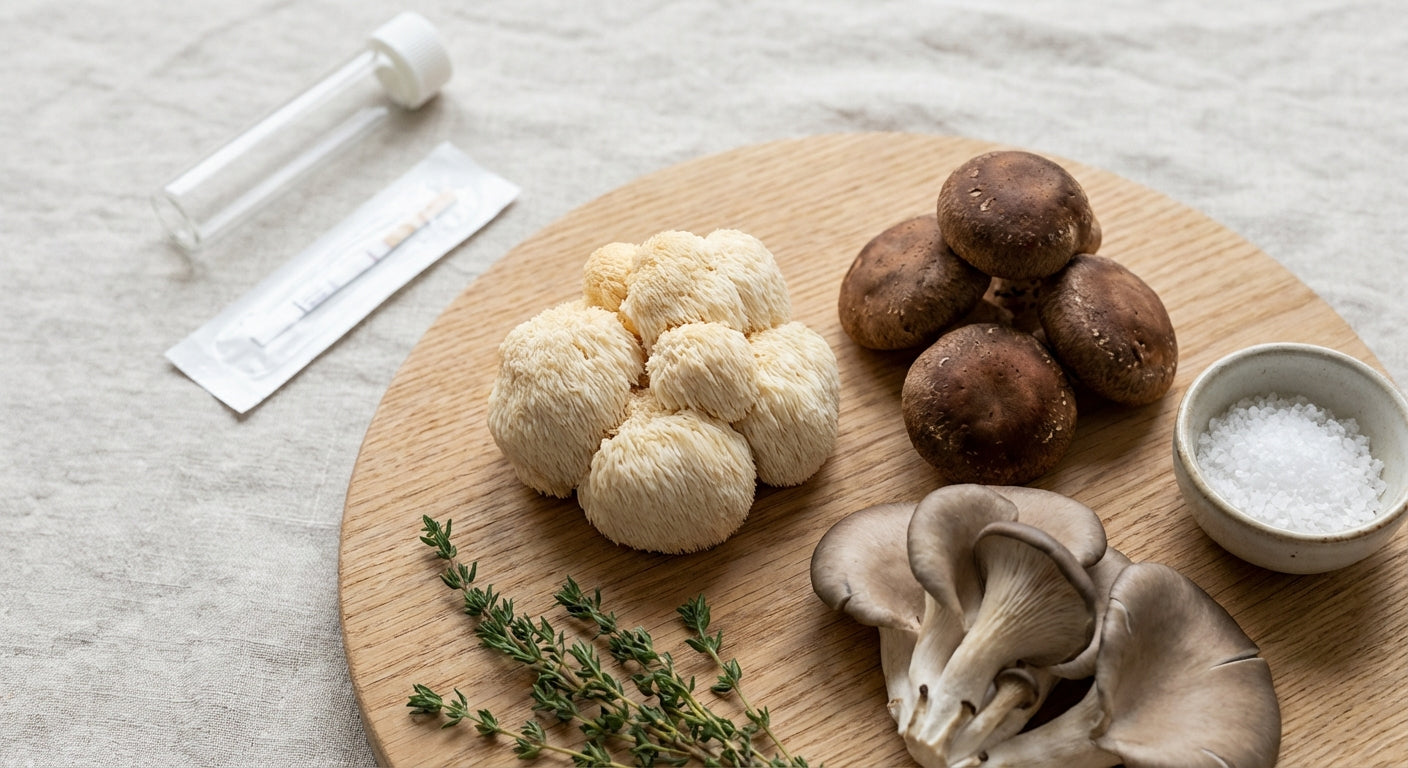
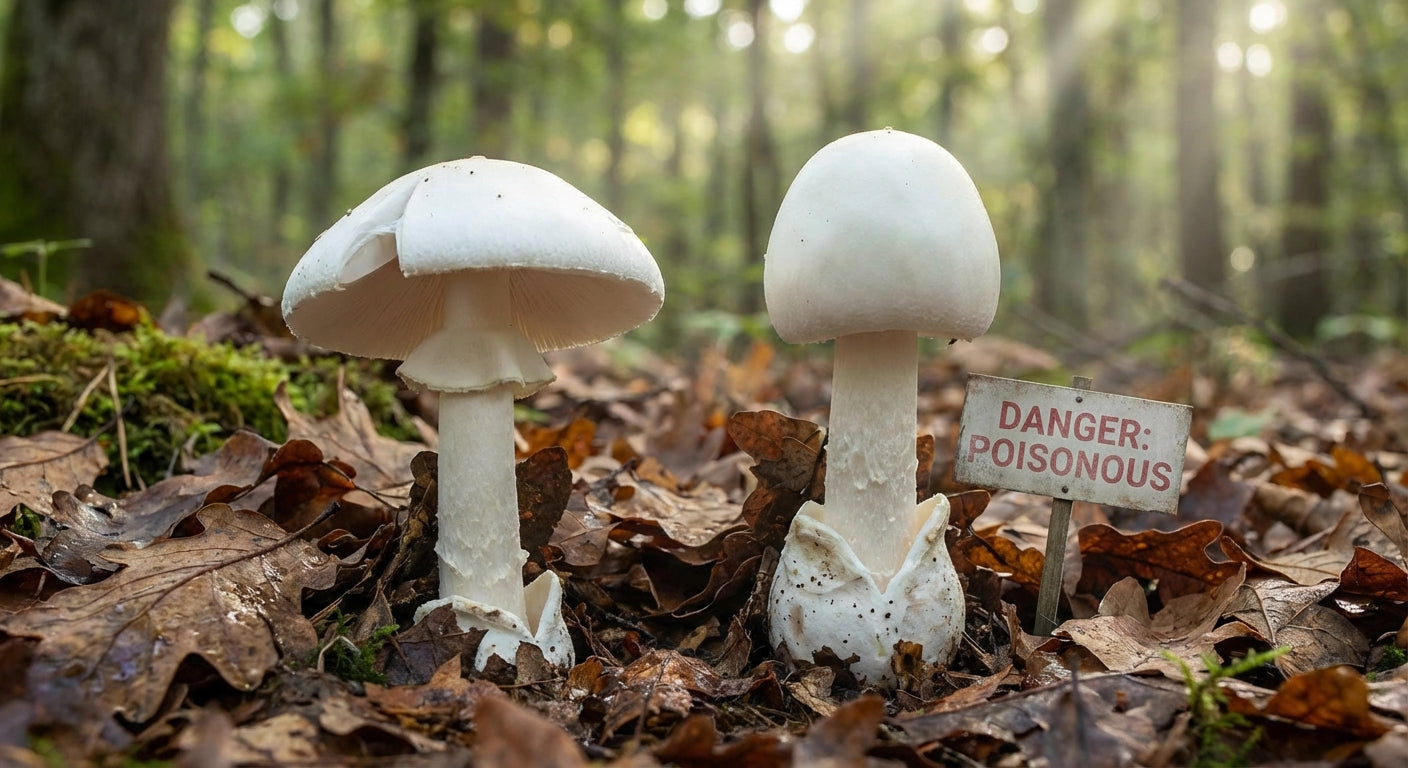


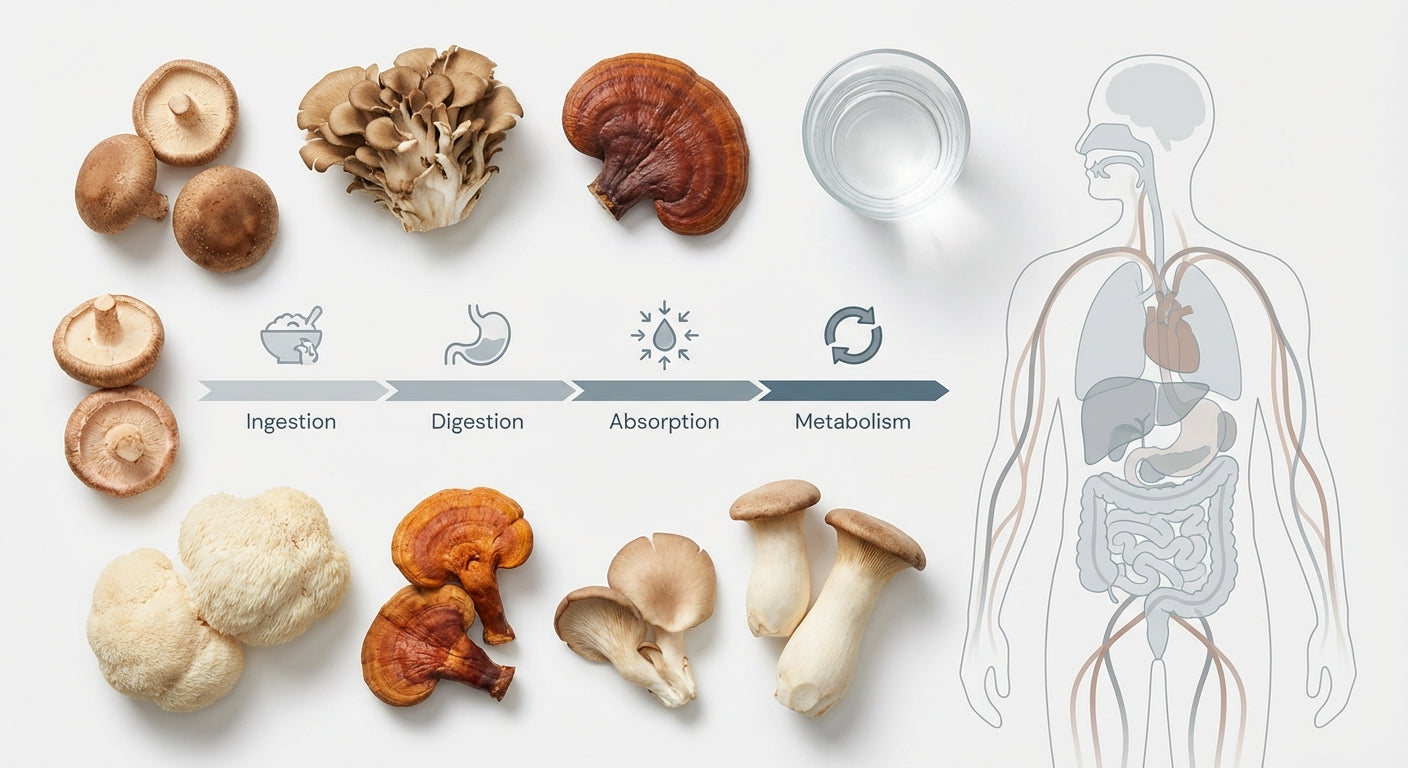

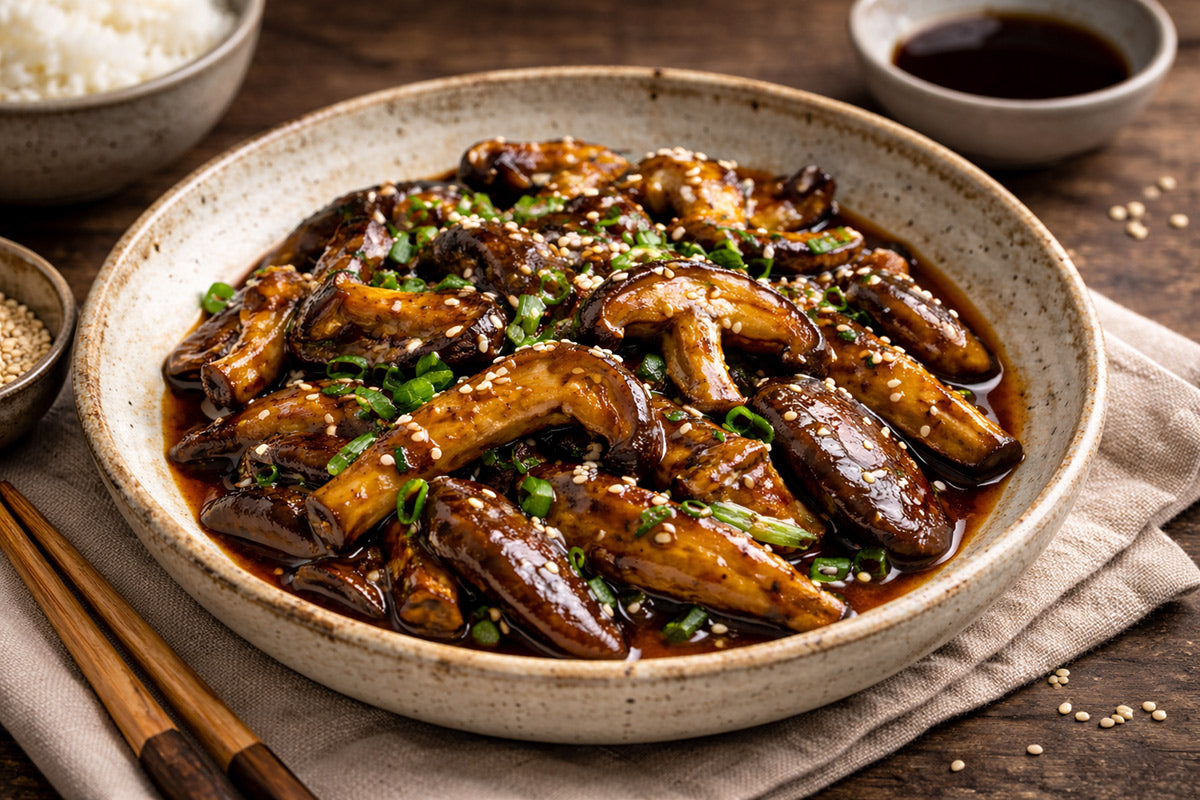
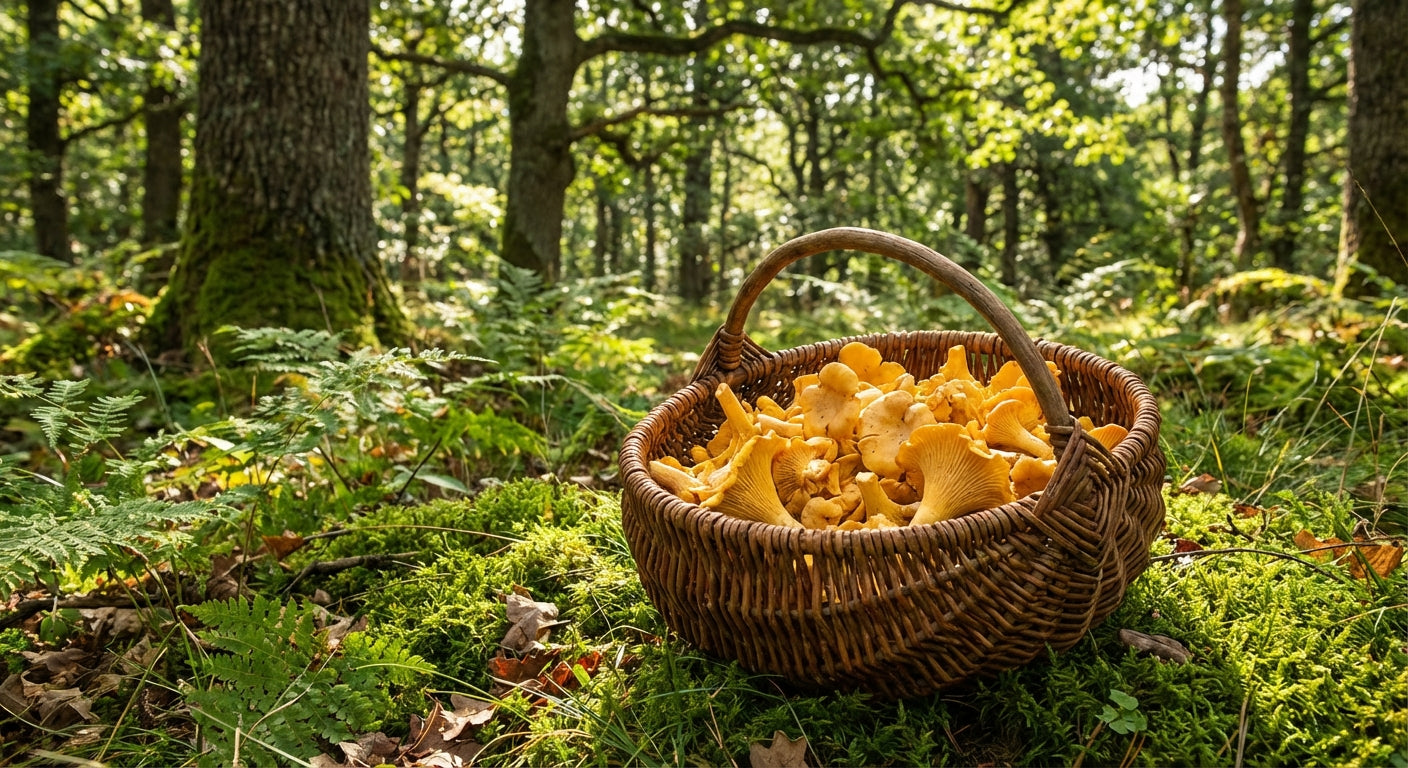
Share:
Red Reishi Mushroom: Unveiling the Hidden Wonders of Nature’s Healing Superfood
Reishi Mushroom Powder: Unlocking the Powerful Health Benefits of Nature’s Superfood